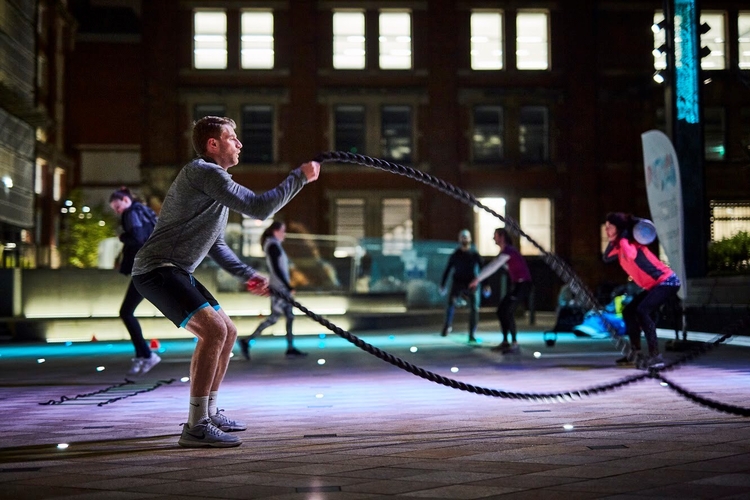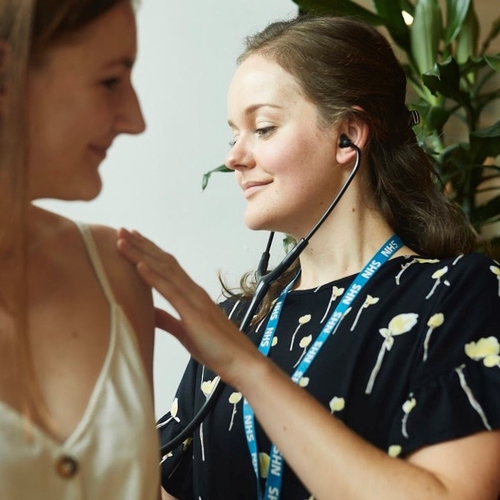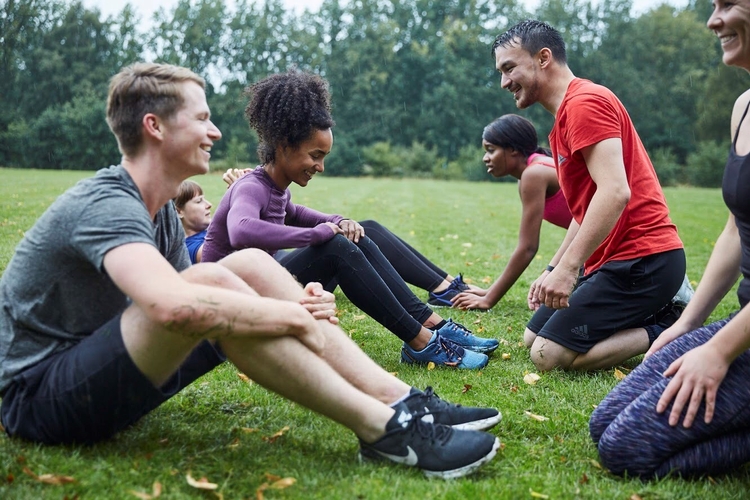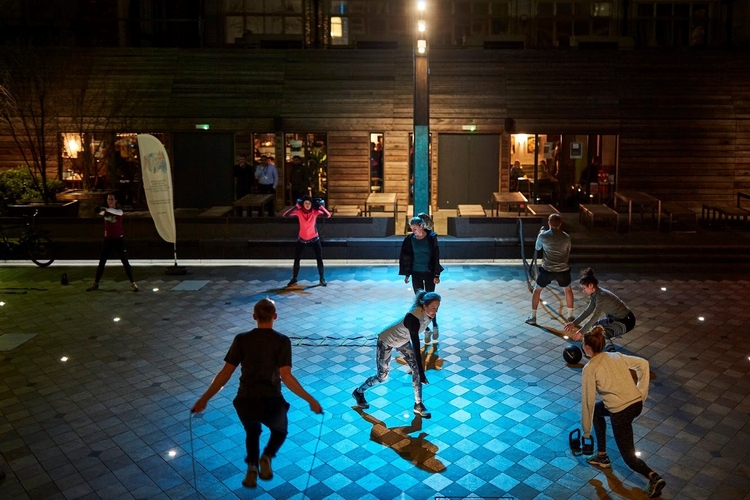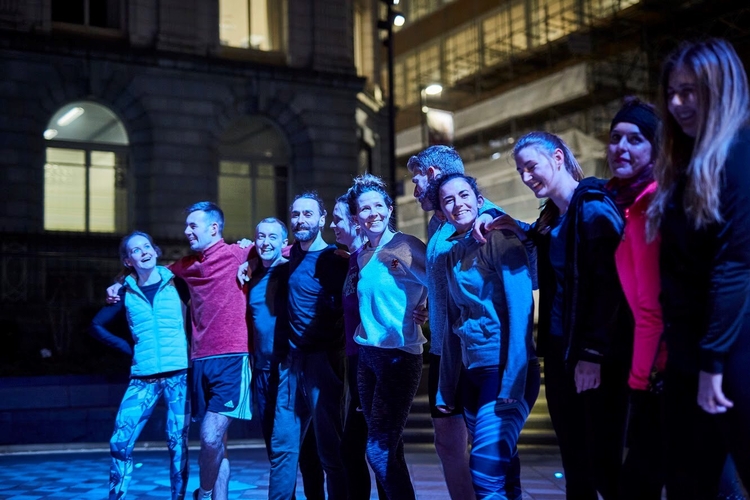NHS Doctor Jessicarr Moorhouse talks sustainable choices and why movement is the best medicine
Hands up, who’s already broken their new year’s resolutions? Come on now, don’t be shy.
It’s ten days into January and I am guilty as charged.
But I’m not alone. Almost a quarter (22%) of Brits have reportedly already failed their resolutions.
So, where am I and my fellow gym-dodgers going wrong?
For Dr Jessicarr Moorhouse, the mantra of ‘New Year, New You’ has much to answer for.
“We put a lot of pressure on ourselves to attain these goals in a short space of time and this often involves large shifts in our lifestyles,” Moorhouse explains. “In my experience, these goals can lead to over complicated workout regimes and shifting, unattainable goals.”
“It can also cause negative thoughts about our body-image and the use of risky methods of losing weight. It is rare that this leads to a healthier and happier life.”
Moorhouse is the brains behind Tribe.MCR, an innovative new wellness offering that plans to harness the power of exercise to promote all aspects of health – not just building the perfect peach for your Instagram feed.
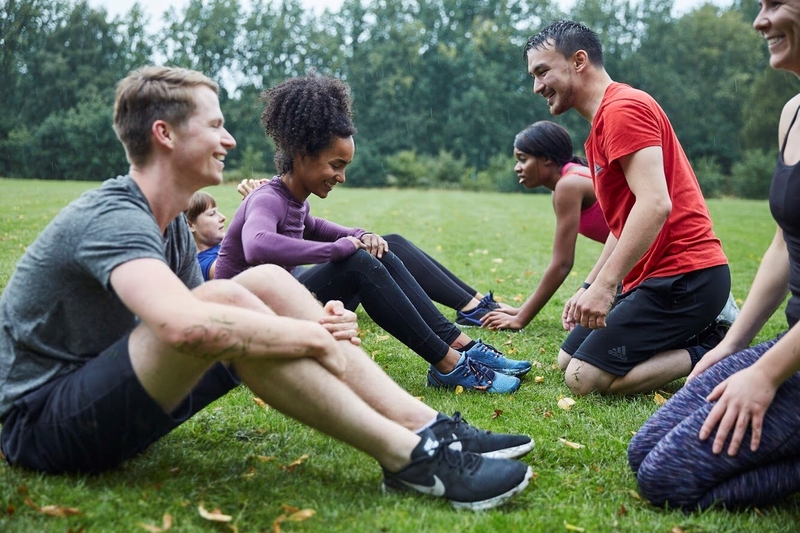
Exercise helps to prevent conditions such as Type 2 Diabetes, Heart Disease and Dementia.
For Moorhouse, exercise-centric resolutions often miss the major health benefits of regular movement.
“Exercise helps to prevent conditions such as Type 2 Diabetes, Heart Disease and Dementia,” Moorhouse explains. “These conditions can be slowed down, reversed and even prevented from happening in the first place [through exercise].”
“When we exercise, we see a number of anti-inflammatory effects on the body. We are able to target any build-up of visceral fat around our organs, help to improve the way our body uses insulin and the health of our blood vessels. Every single muscle contraction releases anti-inflammatory molecules that our body can use to good effect.”
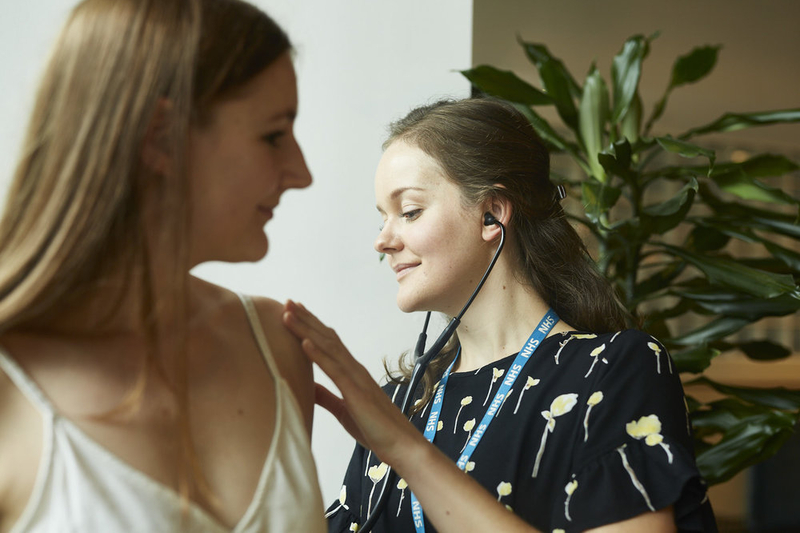
Dr Moorhouse used regular exercise herself to treat her own health issues, including mood, anxiety and symptoms of lower back pain.
“When we exercise, we give ourselves the chance to switch off and to forget about life or troublesome thoughts. I certainly can't think about anything else when exercising. There is evidence from studies that use Magnetic Resonance Imaging (MRI) of the human brain, which shows that exercise helps us to activate areas of the brain that engage in 'rest mode'. Being in this 'rest mode' is thought to improve mental health conditions such as anxiety and low mood.
Exercise is recommended by the National Institute of Clinical Excellence for initial treatment of milder forms of depression.
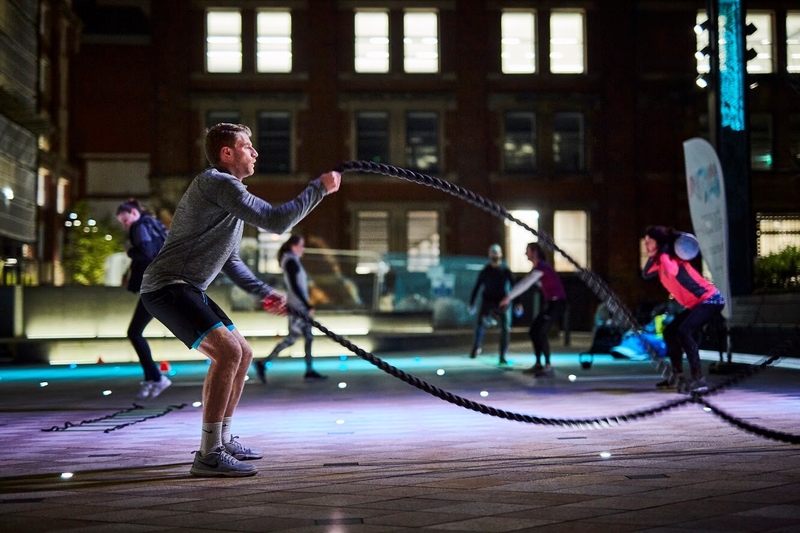
“There is also a large body of research which suggests that exercise helps to improve our cognition and even slow the onset of dementia,” Moorhouse explains. “When we exercise, we utilise a number of areas of the brain in order to make decisions, execute tasks and use memory. There is research to suggest that the number and quality of the connections in these areas of the brain increases after extended periods of exercise.”
In the age of the loneliness epidemic, Dr Moorhouse argues that exercise offers adults a much-needed opportunity for social connectivity.
“Humans have an inherent desire to belong to a group. When we exercise in groups, whether we know the other people or not, there is an undeniable sense of belonging. This was first theorised by Tajfel in 1979, as the Social Identity Theory, and I see this week after week at our Outdoor Group Training sessions at Sadler's Yard and in West Didsbury.”

However, despite the wider health benefits, Moorhouse acknowledges that it can be hard to fit regular activity into the busy modern lifestyle.
“I am under no illusion that leading a healthy lifestyle is easy,” Moorhouse continues. “As an NHS doctor, I work with people from all walks of life and I understand the challenges faced when taking up and continuing to exercise. What I try and encourage is small steps over a long period of time that are simple and realistic.”
So, what is a simple and realistic exercise goal? The World Health Organisation recommends that adults should be doing at least 150 minutes of moderate intensity exercise (brisk walk, cycling, swimming) or 75 minutes of vigorous intensity exercise (running, playing sport, group exercise class) per week, as well as strength-based exercises on at least two days per week.
Whilst 150 minutes of exercise a week might not sound like much, studies show that less than one-in-four adults in the UK manage to achieve this level of activity and are deemed to be physically inactive.
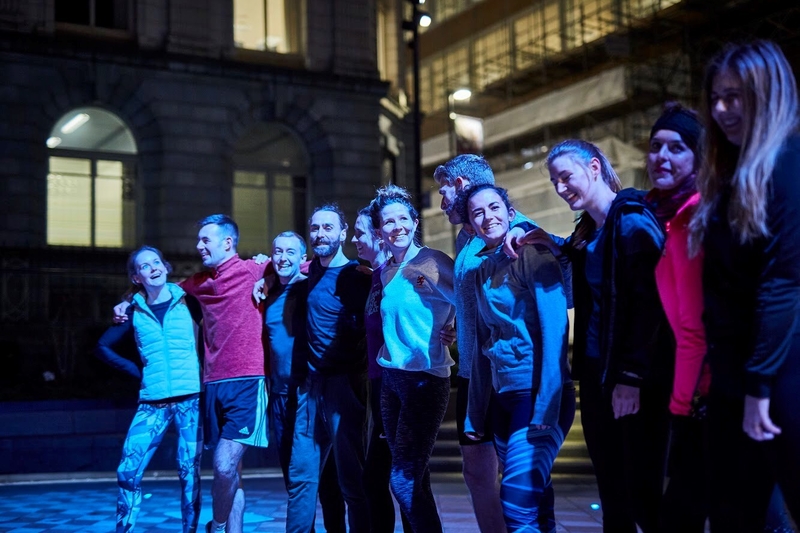
Those who do tick off regular gym sessions may still be prone to a sedentary lifestyle - a modern phenomenon used to describe our preference for sitting, be it at our desks, in front of the TV or watching Netflix.
“Movement and exercise are both important, as part of a healthy lifestyle,” Dr Moorhouse explains. “Outside of structured exercise sessions, it is important that we try and stay as active as possible.”
“Unfortunately, we live in a world where sitting is the norm. We may sit to travel to work, we may sit at work and we probably sit to relax or for leisure activities. It [sedentary behaviour] is an independent risk factor for heart disease, type 2 diabetes, some forms of cancer and joint problems. This means that it is important to keep active throughout the day, even if we are taking part in regular structured exercise.”
Dr Moorhouse is sharing more advice on how exercise can impact your wider health at her event, 'TRIBE.MCR presents: Movement is Medicine'.
An evening with Dr Jessicarr Moorhouse, Darryl Edwards and Suzy Glaskie.
Date: 16 Jan 2019
Location: LEAF on Portland Street.
Tickets £15 – buy them here




